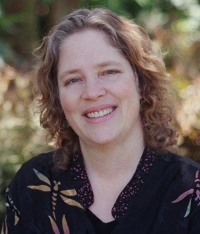 Even the best-intentioned friends and relatives can sometimes get it wrong when communicating and interacting with individuals on the autism spectrum and their parents or siblings.
Even the best-intentioned friends and relatives can sometimes get it wrong when communicating and interacting with individuals on the autism spectrum and their parents or siblings.
In this interview for her new book, A Friend’s and Relative’s Guide to Supporting the Family with Autism, Ann Palmer explains some of the most common errors made by friends and family, and shares her top piece of advice for building and maintaing supporting relationships.
How did this book come about – why is the topic of your new book such an important one?
When I first found out about my son’s autism twenty-six years ago, I started attending a Mother’s Support Group in my area. We would have monthly meetings and there would be a topic for each meeting that we would discuss. A recurring, and very popular, topic over the years was the extended family. At the first meeting I attended about the extended family, I was shocked at how many of the mothers at the meeting had very difficult relationships with their extended family members. They told sad stories of the lack of support they received and how their family members often made their lives more difficult rather than helping. I was often the only mother there who had positive stories of supportive family members.
Over the years I’ve worked with hundreds of families and I continue to hear stories of strained relationships so I know this is a very important issue. I believe that there are many misunderstandings that often get in the way of developing these supportive relationships: not understanding what the parents are going through when their child is diagnosed, not understanding what is helpful to say or do and what is NOT helpful, and not understanding that the extended family members and friends are also going through a grieving and adjustment process and may need support too.
 What is the most common error made by well-meaning friends and relatives when trying to offer their help?
What is the most common error made by well-meaning friends and relatives when trying to offer their help?
I think family members and friends are so worried about trying to make the parents feel better when they hear the news about the diagnosis, that they can say things that are not helpful such as, “I’m sure it’s not autism” or “He just needs discipline”, which doesn’t help and only makes the parents feel worse. Family members and friends need to educate themselves about autism and about the child’s autism. Parents can help with this and educating the family members and friends will help them understand the RIGHT things to say and do to help.
If you could give one tip to friends and relatives of families with autism, what would it be?
I would tell friends and relatives to be good listeners and to try to get involved in the life of the child with ASD and his or her family. Parents need to have someone to talk to that won’t judge or always try to “fix” the problem. And the family member or friend can’t truly understand what the parents are going through or how to help if they don’t get involved and get to know the child.
What is the key message you would like readers to take away from the book?
Getting support from family members and friends is crucial to the parents raising a child with autism. There definitely are things the family members and friends can do to be more supportive but there are also things parents of the child with ASD can do to help build these supportive relationships. It is a two-way street and all parties need to realize that everyone needs understanding and support.
More from Ann about her work with families:
My background was in Sociology and I worked with kids with behavior problems in the local school system before I stopped working to have my first child. When my son was diagnosed with autism at Division TEACCH, I became very involved in attending therapy sessions and support groups there. I started volunteering to help develop a mentoring program at TEACCH that was connecting parents of newly diagnosed children coming through the Center with experienced veteran parents. The mentors knew what the newly diagnosed parents were going through and could offer emotional support as well as information about resources in the community. After developing this program and running it as a volunteer, I was offered the job of Parent Support Coordinator and developed the mentor program at several TEACCH Centers. That started my work in the autism field and I was at TEACCH for 14 years. I then worked at the Autism Society of North Carolina to direct their extensive Chapter program with close to 50 Chapters across the state. I love working with families of individuals with ASD and my work always felt like something I would want to do even if I hadn’t been getting paid!
Copyright © Jessica Kingsley Publishers 2012.